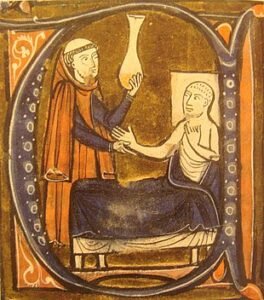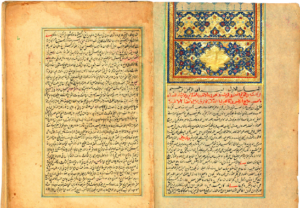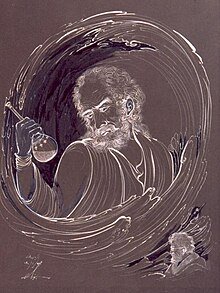Abu Bakr Muhammad ibn Zakariya al-Razi (Rhazes) – A Pioneer of Medicine and Chemistry

Abu Bakr Muhammad ibn Zakariya al-Razi, commonly known in the West as Rhazes, was a Persian physician, chemist, and scholar of the Islamic Golden Age (854–925 CE). He is considered one of the greatest medical minds in history, making significant contributions to medicine, chemistry, and pharmacology. His discoveries and methodologies influenced both Islamic and European medical traditions for centuries.
Contributions to Medicine
Founder of Pediatrics & Ophthalmology
Al-Razi was the first to differentiate between smallpox and measles, based on their symptoms. His book “Kitab al-Jadari wa al-Hasbah” (The Book on Smallpox and Measles) became a reference for both Islamic and medieval European medicine. He pioneered early concepts in pediatrics, recognizing that children require different medical treatments from adults.
Contributions to Chemistry & Pharmacology
Father of Experimental Chemistry

Al-Razi refined distillation and extraction methods, playing a key role in the development of alcohol for medicinal use. He discovered sulfuric acid, which became a cornerstone in later chemical studies. He classified substances into animal, vegetable, and mineral categories, laying the groundwork for modern chemistry. He was the First to Use Alcohol as an Antiseptic. Recognizing alcohol’s disinfecting properties, he used it to clean wounds and prevent infections. His medical writings mention mercury-based ointments to treat skin diseases, an early form of antiseptic medicine.
Major Works & Books

1. “Kitab al-Hawi” (The Comprehensive Book of Medicine)
- This encyclopedia compiled centuries of medical knowledge, serving as a standard medical reference in both the Islamic world and Europe. It covered diseases, treatments, surgical methods, and pharmacology.
2. “Kitab al-Mansuri” (The Mansuri Book of Medicine)
- A ten-volume medical guide detailing human anatomy, disease classification, and treatment methods. It was later translated into Latin and used in European medical schools for centuries.
3. “Kitab al-Jadari wa al-Hasbah” (The Book of Smallpox and Measles)
- One of the earliest books to describe and differentiate smallpox and measles. It remained a key epidemiological reference for medieval physicians.
Legacy and Influence
Al-Razi’s medical works were translated into Latin and studied in European universities well into the Renaissance. His emphasis on clinical observation, experimentation, and rational thinking influenced both Western and Islamic medical traditions. His contributions to hospital management and medical ethics shaped the development of modern healthcare systems.

Conclusion
Abu Bakr al-Razi was a true pioneer of medicine and chemistry, whose contributions continue to inspire modern medical and scientific advancements. His legacy as a scientist, physician, and philosopher underscores the importance of rational thinking and evidence-based science in the pursuit of knowledge. His revolutionary medical discoveries and innovative hospital management strategies helped shape modern medical practices. His insistence on empirical research and scientific experimentation laid the foundation for advancements in both medicine and chemistry. Even centuries after his time, his works are still studied and respected, proving the enduring value of his contributions to human knowledge. Al-Razi’s dedication to learning, discovery, and ethical medicine serves as a timeless model for scientists, physicians, and researchers around the world.


